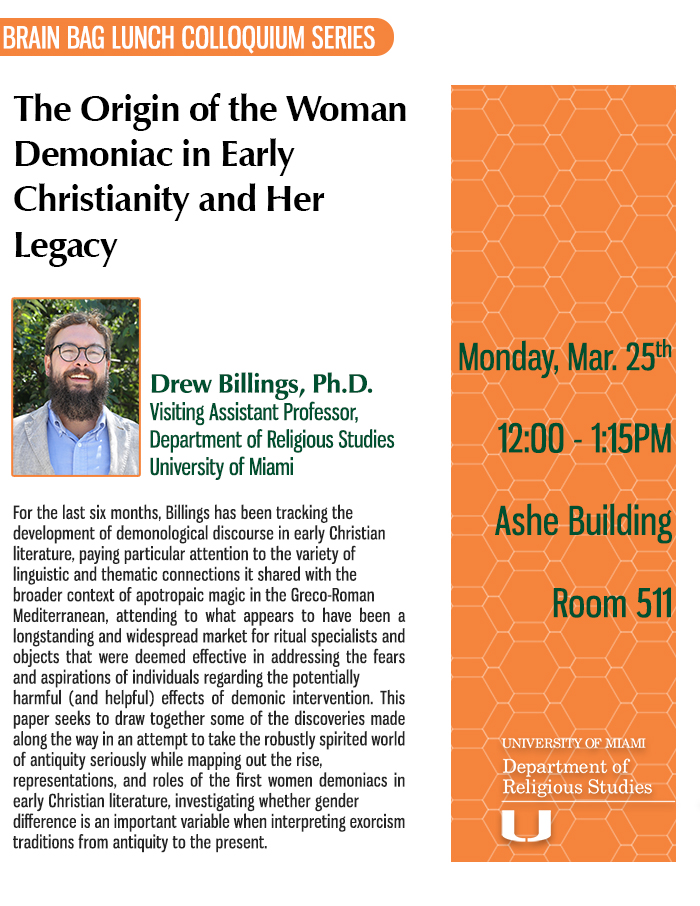
The Origin of the Woman Demoniac in Early Christianity and Her Legacy
For the last six months, Billings has been tracking the development of demonological discourse in early Christian literature, paying particular attention to the variety of linguistic and thematic connections it shared with the broader context of apotropaic magic in the Greco-Roman Mediterranean, attending to what appears to have been a longstanding and widespread market for ritual specialists and objects that were deemed effective in addressing the fears and aspirations of individuals regarding the potentially harmful (and helpful) effects of demonic intervention. This paper seeks to draw together some of the discoveries made along the way in an attempt to take the robustly spirited world of antiquity seriously while mapping out the rise,representations, and roles of the first women demoniacs in early Christian literature, investigating whether gender difference is an important variable when interpreting exorcism traditions from antiquity to the present.






